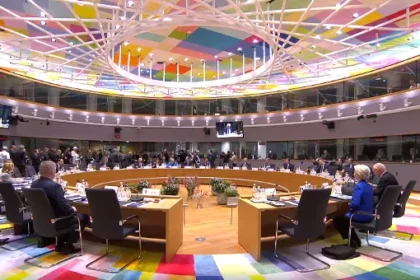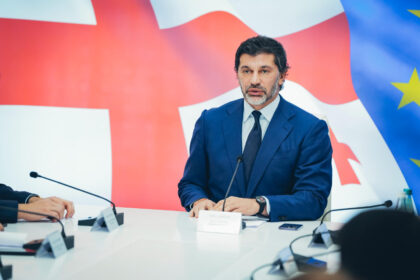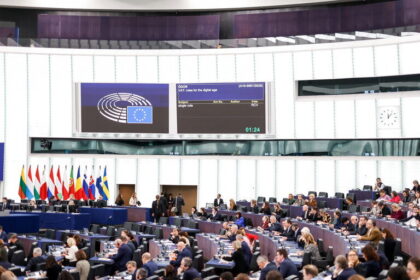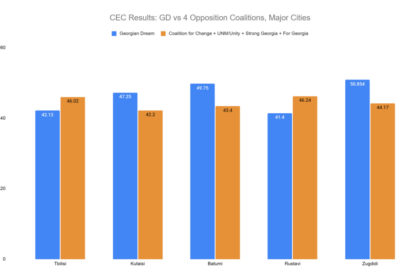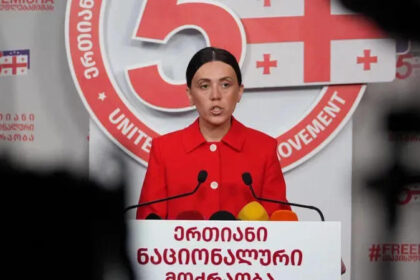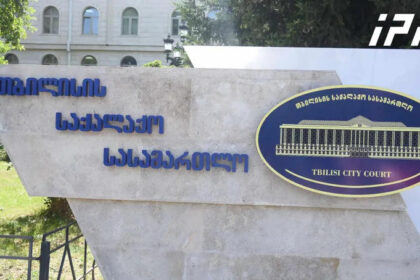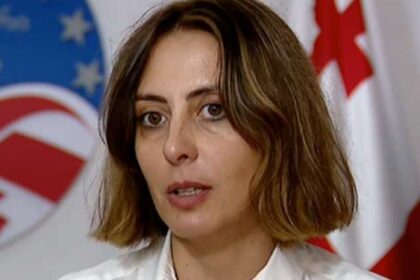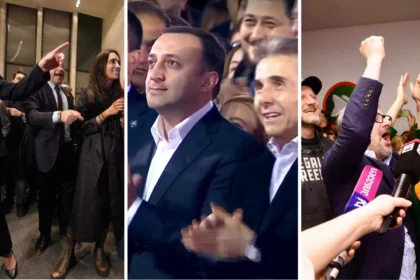**Georgia’s Ruling Party Lashes Out at EU and UK, Accusing Them of “Deep State”**
In a strongly worded statement, Georgia’s ruling party, Georgian Dream (GD), has accused the European Union (EU) and the United Kingdom (UK) of being ruled by a “Deep State”. This reaction comes in response to a statement from 17 EU countries and the EU High Representative expressing deep concerns over the “deteriorating situation” in Georgia.
The GD statement, issued on July 13, claims that Europe is experiencing a “democratic backsliding” and “value crisis”, citing uncontrolled migration, pseudo-liberal propaganda, and the erosion of state and religious institutions as reasons. The party also accuses the EU and UK of being ruled by an informal network of influential officials who prioritize their own interests over those of their countries.
GD’s reaction is a direct response to a statement from 17 EU countries and the EU High Representative, which expressed deep concerns over the “deteriorating situation” in Georgia. The EU foreign ministers called on the GD leadership to “reverse course”, citing “politically motivated” jailings of opposition leaders and “arbitrary arrests” of critics.
**GD’s Conspiracy-Laden Response**
In its statement, Georgian Dream accused the EU and UK of being ruled by a “Deep State”, which it claims is working to undermine democracy in Georgia. The party also advanced a conspiracy theory that the “Deep State” has removed Great Britain from the EU with the goal of establishing a separate center alongside the EU and the US.
GD’s statement also expressed hope that US President Donald Trump would be able to defeat the “Deep State”, which it claims would restore sovereignty to European countries. The party warned that if the “Deep State” is not defeated, but instead undergoes “rebranding”, it will lead to further weakening of Europe and continued attacks on Georgian people and democracy.
**Responding to Criticism**
GD addressed criticism from European foreign ministers about “politically motivated” jailings of opposition leaders and “arbitrary arrests” of critics. The party dismissed these accusations as “disinformation”, arguing that the laws used to prosecute opposition leaders are in line with European practice and standards.
GD also accused Germany and France of persecuting political opponents, citing cases in Romania where a presidential candidate faced annulment of their vote, criminal prosecution, and a ban on participation. The party claimed that if there is any country that should be talking about political persecution, it is Germany and France.
**A Divided Europe?**
The statement by Georgian Dream highlights the deepening divide between Georgia’s ruling party and the West. As dozens of individuals in Georgia face charges widely seen as politically motivated, the EU continues to express concern over the human rights situation in the country.
In a time when European values are being challenged on multiple fronts, the statement by Georgian Dream serves as a reminder that the EU is not immune to internal divisions and contradictions. The GD government’s response also underscores the need for more effective communication and cooperation between Europe and Georgia to address the complex issues facing both parties.
**What Next?**
The tensions between Georgia’s ruling party and the West are likely to continue, with both sides dug in their positions. As the situation unfolds, it remains to be seen how the EU and its member states will respond to GD’s accusations of “Deep State” manipulation.
One thing is certain: the relationship between Europe and Georgia is at a critical juncture, with the future of democracy and human rights hanging in the balance.





